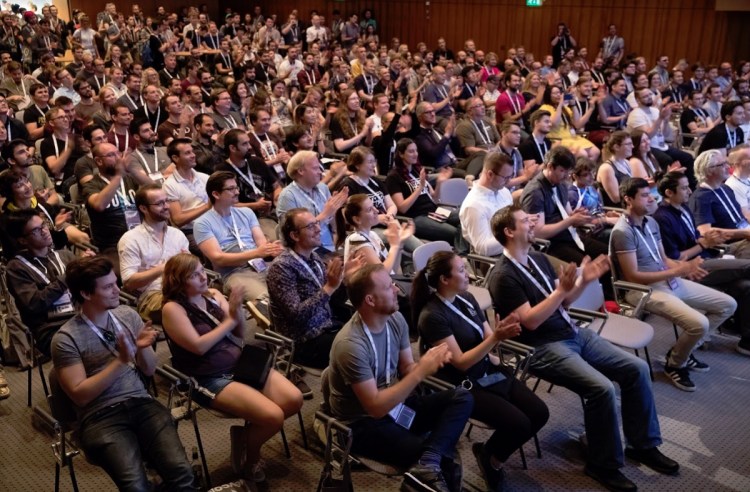While the Electronic Entertainment Expo (E3) had a shaky year in the U.S., Europe’s Gamescom event is going quite strong. Last year, Europe’s biggest game event drew 370,000 people, most of them fans who came from 114 countries.
The next Gamescom is coming August 20 to August 24 in Cologne, Germany, and it will be preceded by Devcom, a 2,500-person event for professional game developers. I’ll be going to Devcom this year, and I spoke with Stephan Reichart, managing director of Devcom, about the event, which takes place from August 17 to August 19.
One of the key differences between the U.S. and German events is fans. E3 let in about 15,000 fans for the third year in a row, with a total of 66,000 attendees, down from 69,000 a year ago. This year’s E3 marked the absence of Sony, Electronic Arts, and Activision Blizzard — resulting in empty space on the show floor. But both Gamescom and Devcom are on a growth path.
The latter show is the result of the combination of Devcom and Respawn, which replaced the original GDC Europe show, which shut down in 2016. Reichart said the renewed Devcom is stronger than ever, thanks in part to the growth of Gamescom, European government support of the game industry, and healthy growth of the German game development community.
June 5th: The AI Audit in NYC
Join us next week in NYC to engage with top executive leaders, delving into strategies for auditing AI models to ensure fairness, optimal performance, and ethical compliance across diverse organizations. Secure your attendance for this exclusive invite-only event.
Here’s an edited transcript of our interview.
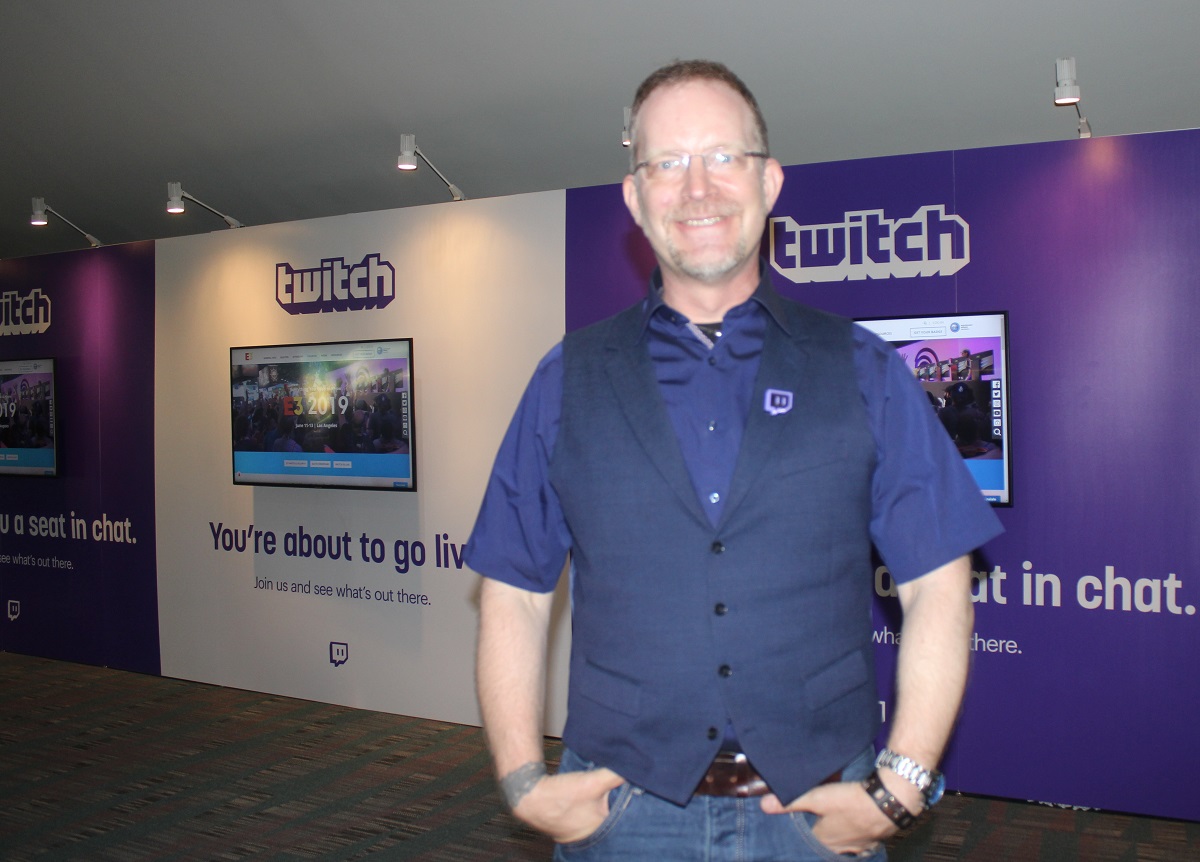
Above: Stephan Reichart
GamesBeat: Can you tell me about the mission of Devcom and some of the history? What do you want to achieve?
Stephan Reichart: When we started Devcom two years ago, we wanted to have a successor to GDC Europe. In the first year we had the mission to merge Respawn, the indie conference, and a business conference with each other. In the second year we completed the merger. Last year we had Devcom for the first time and we had a really good conference. My mission for next year and the following years is to do a great developer event.
It’s important to have one real European developer event. We have a lot of fantastic local events all over Europe. Right before Gamescom, where thousands of people travel to Cologne, we have a chance to set up a real European developer event. By event I mean it’s more than just a conference. It’s more than just German game developers. We’ve set up strong relationships and partnerships with our friends in France, in the U.K., in Poland, in Italy.
We were able, over the last few weeks and months, to invite associations from all over Europe to attend and send out their members and join Devcom. Our registration numbers are up to more than 100 percent above last year so far. The feedback has been awesome. Last year we had 2,500 people overall, including all the attendees like journalists and volunteers and speakers. Our goal is to reach more than 3,000 at least this year. I’m confident that we’ll reach that number quite easily.
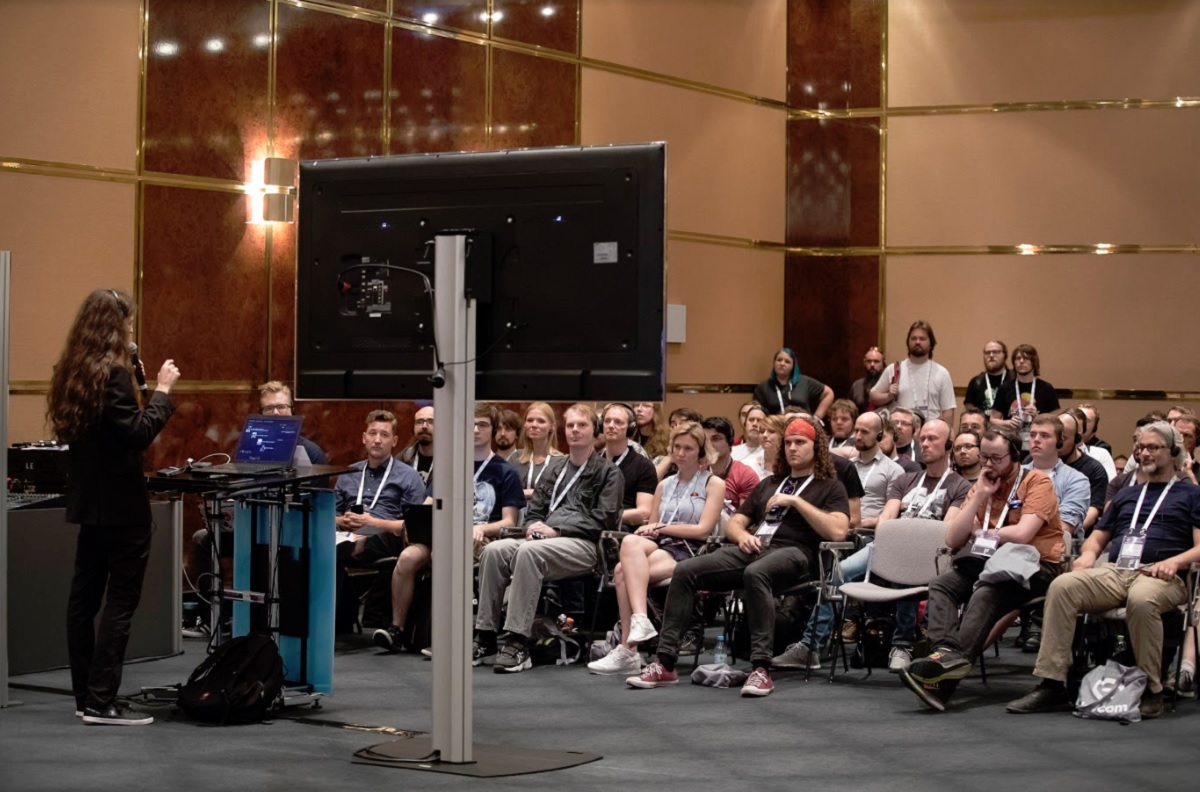
Above: Devcom has tons of panels for game developers.
GamesBeat: People are hungry for a games business conference, do you think?
Reichart: A business conference, but also, they like what we added. We didn’t simply raise the quality of everything. For example, by having a new kind of advisory board — this year we have a so-called core advisory board of eight people running their own studios or their own departments. They told us what their employees would like to talk about at our conference. We worked on all schedules and all topics and all sessions before we started the call for papers. Just by doing that, we could reach out to more than 60 people out there, 60 speakers who’ve already confirmed their talks before we started the call for papers.
We also did the most successful call for papers yet, to be honest. We reached more than 135 proposals. Last year we had 70. The quality of what we’ve seen is great compared to last year and the years before. Everyone is very satisfied and happy with that, but the new parts of Devcom are even more important. For example, we’ll have the Devcom person of the year award. We’ll have the chance for smaller game development studios to do their own press conferences during Devcom and reaching out to the 400 registered journalists and media people we have there.
We also added a lot of community events. On Sunday evening we’ll have the Devcom sunset party, for example. It’s in the same venue, so we’re not going to another venue, but we’ll have all the attendees together. We stopped splitting our attendees into different groups, like VIP groups over there and regular attendees over here. It’s all on one floor now. One important thing we got really good feedback on was that we’ll have free catering. It’s the first time that people won’t have to pay for a lunch and coffee and water and so on.
GamesBeat: These are good logistics issues, but I wonder, what’s interesting on a higher level? What are your observations on E3 compared to Gamescom? Are there some things you think Gamescom does better? Is it a better global environment for a conference?
Reichart: Gamescom sped up a lot compared to E3. Over the last few years, the number of world premieres at E3 is still higher compared to Gamescom, but Gamescom has raised its number enormously compared to past years.
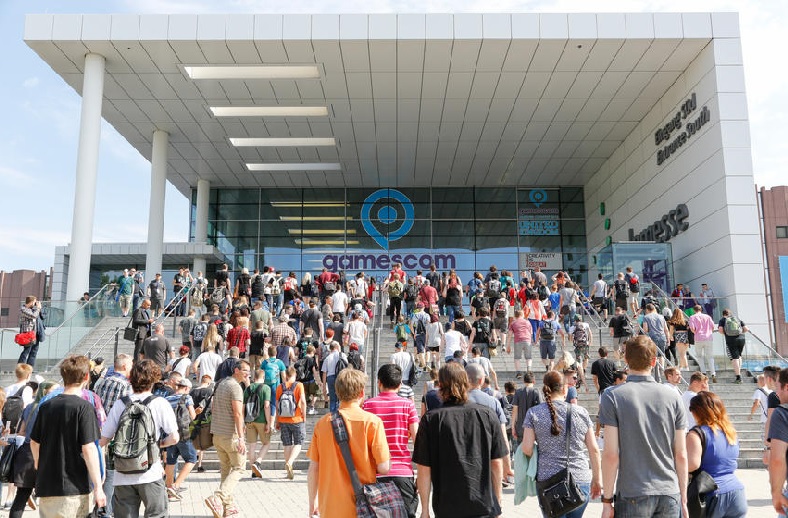
Above: Gamescom crowds from past years.
GamesBeat: Microsoft does a lot there now.
Reichart: Right. The opening ceremony, the opening night on Monday at Gamescom, will be a great show. Geoff Keighley is organizing it. Gamescom has a very high level of exhibitions and booth-building. I don’t see any difference between the booths here and the ones in Cologne. That’s changed over the last three or four years, I’d say. Before that, E3 was always the more impressive place. That’s totally changed. The Fortnite booth at Gamescom last year was mind-blowing.
Maybe the atmosphere at Gamescom is a little bit more like a big community meetup? We have so many more players there, yelling and getting enthusiastic. It’s more like a fan event. It’s a village. The combination of the trade visitor area and the consumer area is quite unique, to be honest. That’s something E3, at the moment, can’t catch up with.
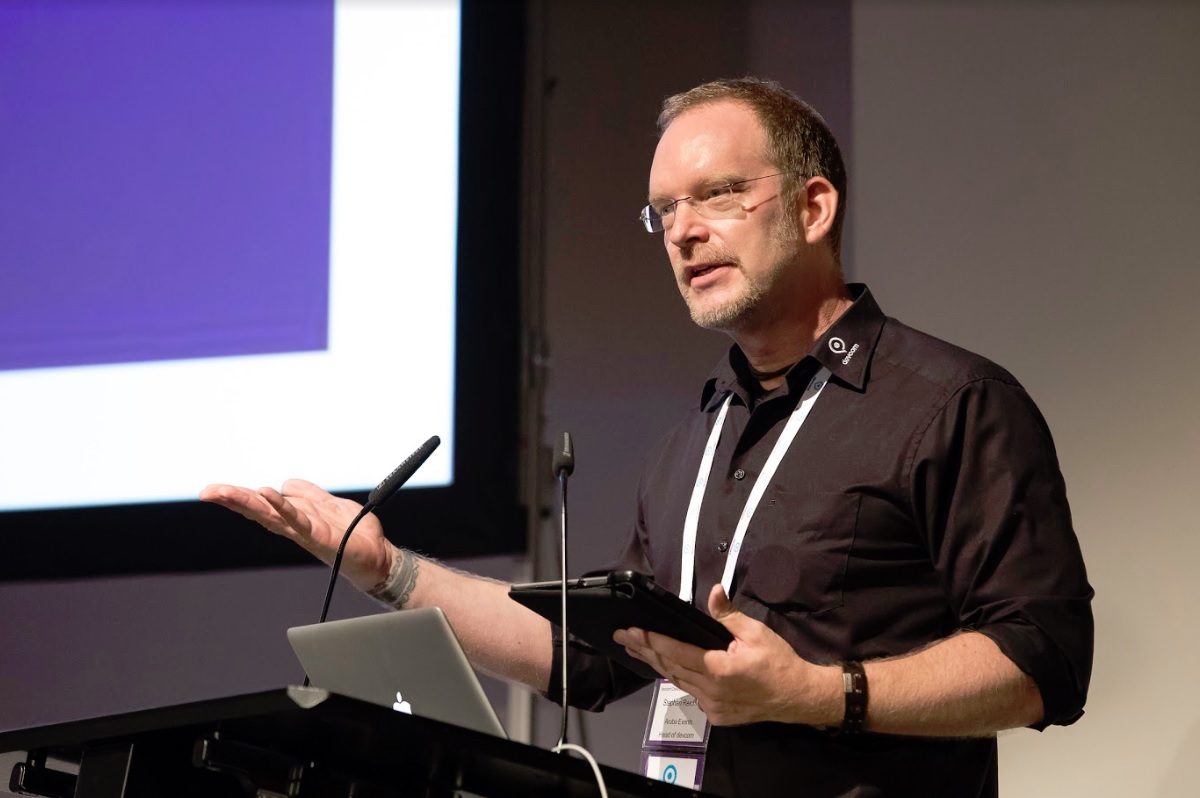
Above: Stephan Reichart is managing director of Devcom.
GamesBeat: How well are German game developers doing?
Reichart: There’s still a way to go. We still have only a handful of studios working on a triple-A level in Germany, but we have dozens of studios working on, say, a double-A level. That’s changed a lot. We have a huge number of talented people being educated at German universities. I’ve met some of them working at places like Naughty Dog. They were all trained in Germany. The quality of our schooling is great.
I don’t know if you already heard this, but we’ll have a huge amount of public funding going into games on a nationwide level from this autumn onward, 50 million euros every year. That will change a lot. We’ve already had similar funding at the state level, about 7 million euros per year, or a bit more. Cologne provided a lot of funding. But overall we’ll be going to up to maybe 65 million euros altogether.
GamesBeat: A lot of European governments have been very supportive of gaming. The U.S. government has been very laissez-faire by comparison.
Reichart: Places like Poland and the Nordics, yeah. Also, if you look at a map, Cologne is very near to Paris. A lot of French people come over. And it’s almost in the Netherlands as well. You can drive from the southern part of the Nordics. A lot of Italians come north. It draws a good mix of all nationalities meeting in the middle. Some American companies do trade events in Vienna, thinking that’s the middle of Europe, but really it’s far to the east.

Above: Elena Nikoleva is one of the speakers at Devcom 2019.
GamesBeat: It matters that Germany itself has a strong developer base, though? You wouldn’t want to do this in a country that had a smaller industry.
Reichart: That’s true. Another important thing is that Germany has a huge number of gamers. Germany is a gaming country. That makes things much easier on many levels, even on the political level.
GamesBeat: It’s the biggest board gaming country.
Reichart: Right. It all started with board games, tabletop games, role-playing games like The Dark Eye and Dungeons and Dragons, all that stuff. Settlers of Catan.
GamesBeat: If you have these advantages, how do you also turn that into a successful event?
Reichart: Over time it’s important to present Germany and the German games industry as it is now. Most of the German game development companies, 30 or 40 percent of their employees are from outside of Germany. At my company, my small event team, we only speak English. Our sales manager is from France. I know teams in Germany that have up 70 percent of their employees from outside of Germany. When we think about Devcom in 2019, it has to be like that, a real international event with a good atmosphere for European and international attendees alike.
GamesBeat: Is there ultimately an aim to help the industry grow, or to do something else?
Reichart: We support the industry on many levels. For example, it was important to me that we’ll have a low-level ticket for students. All the newcomers and students can join Devcom for 40 euros a day. We’re also setting up our indie expo, supported by the government of North Rhine-Westphalia. We’re able to invite indie teams from all over Europe to join the conference for free. We have 60 booths there, up to 60 booths. We’re trying our very best to give them matchmaking tools and all the stuff they need to be seen during Devcom and learn and get in contact with people who can boost their business.
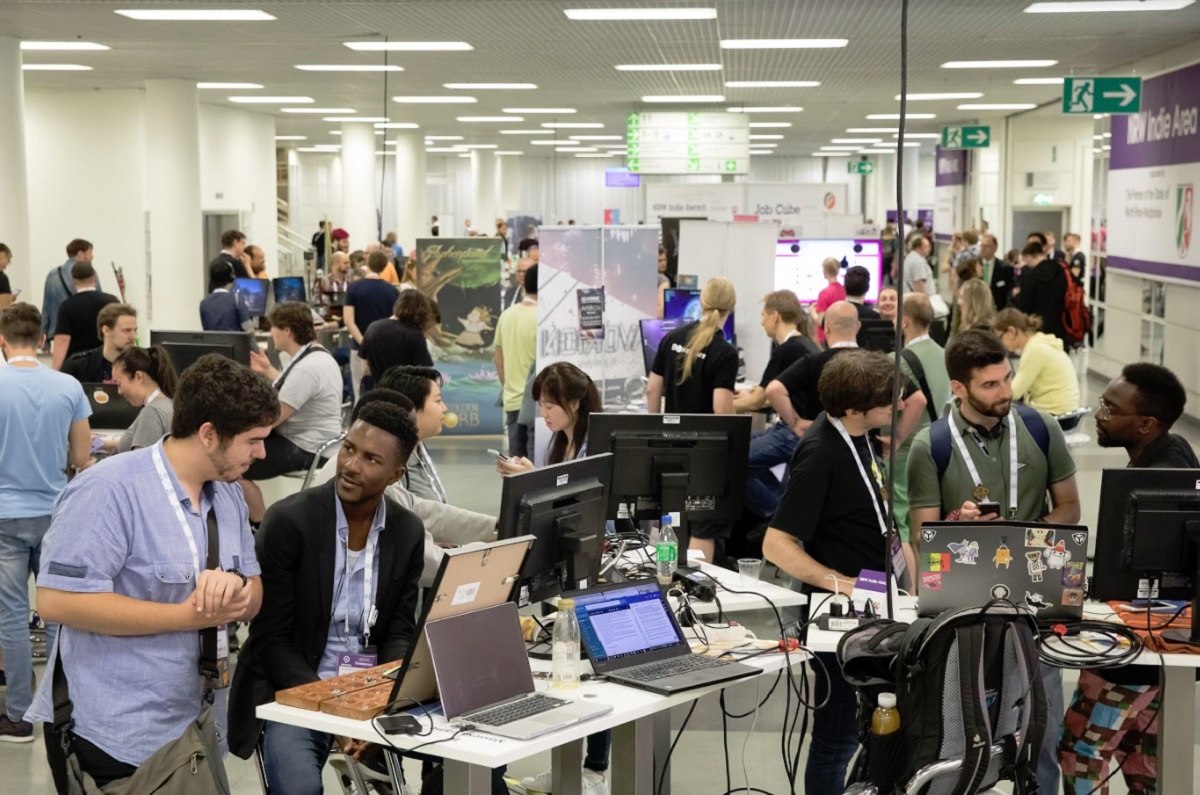
Above: Devcom
GamesBeat: From my own travels, I think it’s good to see the same industry from a different perspective. The European perspective is very different.
Reichart: It is. And you know, it’s not that easy to set up a real European event. Doing something European doesn’t just mean that you speak in English. [laughs] You have to welcome people from all over Europe in a very special way. The reason why our associations we partner with, like the Italians or the French or the Netherlands — Holland is our official partner country. We have to listen to them and understand their needs and give them space for panel discussions and talks and exhibits.
We offer them special discounts, different from country to country, because let’s say a development studio in eastern Europe — they don’t have the same sales power as a studio in the U.K. We have to manage all this. That’s a lot of work. My team and I are busy bringing in all of the people who want to attend.

Above: GameDev.World is a new online only conference.
GamesBeat: I thought it was interesting to see Rami Ismail setting up his GameDev.World event, because he wanted to have an online conference in many languages.
Reichart: I really liked that approach. It’s a great opportunity to connect people with each other who would never have otherwise met. Just to give an idea of the attendees we have from other countries, two weeks ago we got a registration for a group of 40 people from Australia. We have a Lithuanian country pavilion. They booked conference passes for their exhibitors. We’re talking to all of them, offering the perfect package to make it possible for them to join our conference.
The Devcom person of the year award, we’ll be recognizing five people from around Europe nominated by our advisory board and voted on by both the advisory board and all registered journalists attending the conference. By doing this we hope to put a spotlight on the people who drive the European games business. We just started the nomination process two weeks ago. This will be finished in two weeks. Then we’ll announce who was nominated, and the voting starts.
Putting all those pieces together, you can see that we’re very much focused on people, not just on games. For me it’s not interesting to just do another game award. I want to do a people award. We want to bring people to talk, not just show off big popular games. That’s something Gamescom will always be so much better at than Devcom can ever be. I’m focused on teams, people, and topics that are relevant to them.
Disclosure: The organizers of Devcom are paying my way to the 2019 event. Our coverage remains objective.
